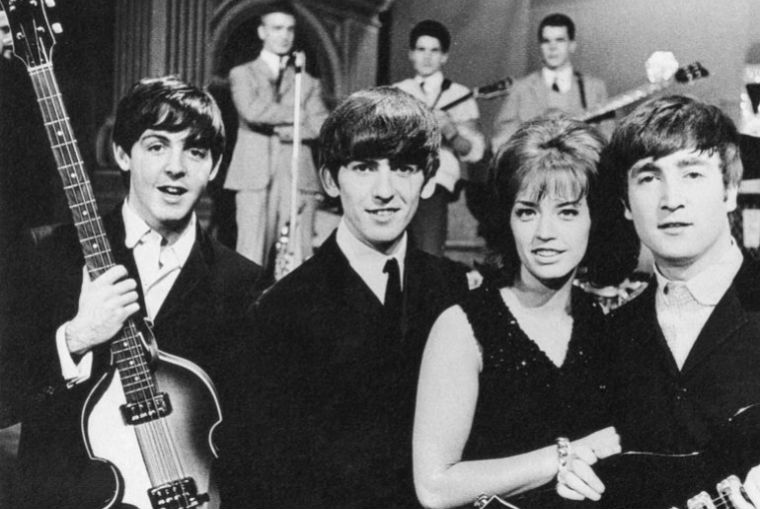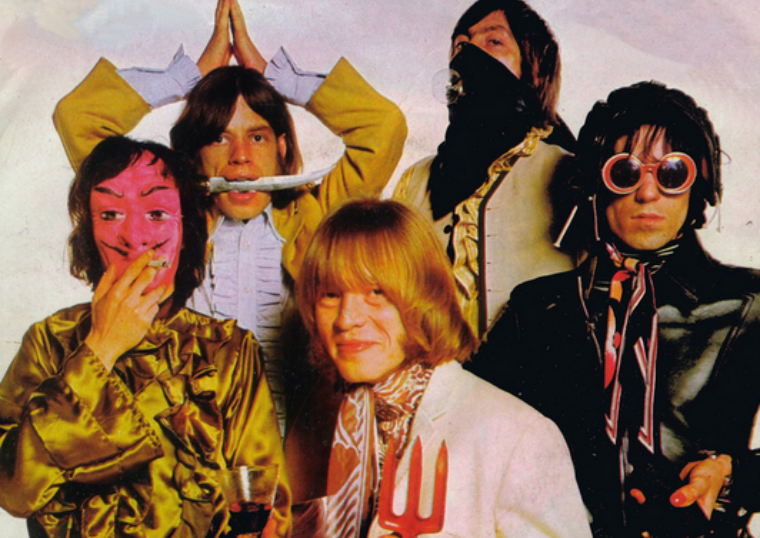(First shared on SmallBusiness.com on February 16, 2014) Whenever you hear the high-pitched wail of a spunky front man, a bluesy guitar riff screech out of a Fender Stratocaster, or a drummer’s attempt at a free-form exploration Jazz Odyssey, you can bet your bell bottoms that there’s a business lesson behind what you’re hearing. At least that’s what I’ve thought ever since running across a blog (and soon to be book) called, “Business Lessons from Rock,” by management consultant and former rocker John G. O’Leary. His posts on David Bowie and Cream not only inspired the lessons from them found below, they cranked up the volume on some lessons hidden in other classic tales from the rock era.
1. ‘Come, Hear Uncle John’s Band’

(Photo via wikimedia commons)
The Grateful Dead has always been well known for their dead-head fans. Because they were a group who spent most of their time touring, the band focused on a core following of fans. Early on, the band established a telephone hotline to alert dead-heads to their touring schedule before making it public. The rockers reserved quality seats and capped the ticket price for these “special fans,” and mailed the tickets directly to their homes. Counter-cultural or not, the Grateful Dead proved masters of marketing strategy by creating and delivering value to a small contingent of loyal customers happy to go along for the ride on their long strange trip.
2. Good ideas don’t come out of “purple haze”
Jimi Hendrix has been named the Greatest Guitar Player Of All Time by Rolling Stone magazine. In the late ’60s, he completely changed the popular idea of rock music by working his guitar, the stage, and his audience but before his break through Hendrix struggled to make a living, playing for various club bands in the United States. Despite his skill, it wasn’t until Hendrix traveled to the U.K. that he quickly became one of the first guitar gods of rock. Hendrix’s career teaches an inspiring lesson to small businesses: it doesn’t matter how good you are if you’re not selling your business in the right market.
3. Working “8 days a week”

(Photo via wikimedia commons)
Fifty years ago, when the Beatles began their magical mystery tour to stardom, their manager got them a long gig at a seedy bar in Hamburg, Germany. The band you’ve known for all these years played six-hour sets, seven days a week, sleeping–when they had the time–in a concrete cell of a room behind the screen at a local movie theater. The grueling schedule pushed the Beatles to their limits it also helped them master their art and learn to collaborate and work as a team. Returning to the U.K. in 1962, John, Paul and George (Ringo had not joined the band yet) recorded “Please, Please, Me,” their first Number 1 hit. Proving that before your small business can become a success or even sustainable, you will have to put in a lot of time and effort.
4. “Sometimes You Get What You Need“
(Photo via Klaus Hiltscher on Flickr)
Throughout his autobiography, Life, Keith Richards focuses on the importance of teamwork and dynamic leadership during his 50-plus years as lead guitarist for the Rolling Stones. “I don’t care who’s leading, it’s about whatever is best for the team,” he says. He explains that though both he and lead singer Mick Jagger attempted solo careers, neither played as well alone as when they worked together, collaborated and fed off each other’s energy and ideas. Entrepreneurs and those wanting to start a small business–take note–a team is stronger than its leader and if you try to start a business by yourself you’ll need some help.
5. Innovation doesn’t always mean ch-ch-change

(Photo via MissJenniferRose on Devintart)
In a music career that has spanned five decades, David Bowie has always managed to be original. Yet this is a funny statement because if there’s one thing a small business can learn from him, its how to innovate (Not too cliche the song, “Changes,” anymore than necessary). In a recent interview conducted by Research and Innovation, Professor Ken McLeod of the University of Toronto Scarborough, admits that Bowie’s music did not change all that much from his beginning. “Where he’s innovating is more in the realm of image and the creation of personas, rather than musical,” says McLeod.
6. Conflict Can Yield A Strange Brew
The supergroup Cream performed together for only two years (1966-1968), yet their impact on rock ‘n roll remains powerful. The band fused pop music with blues and psychedelic rock to create a uniquely edgy sound that has influenced countless other groups and musicians. However, a lot of Cream’s creative success had to do with conflict. Lead guitar virtuoso Eric Clapton was heavily influenced by the blues, while drummer Ginger Baker and bassist/vocalist Jack Bruce had backgrounds in jazz and R&B—and hated each other.Yet they managed to blend these personal and stylistic conflicts to create their signature sound. Though conflict isn’t encouraged in business, Cream provides an example of why it cannot be ignored and a spoonful can even inspire a business’ creative process.

